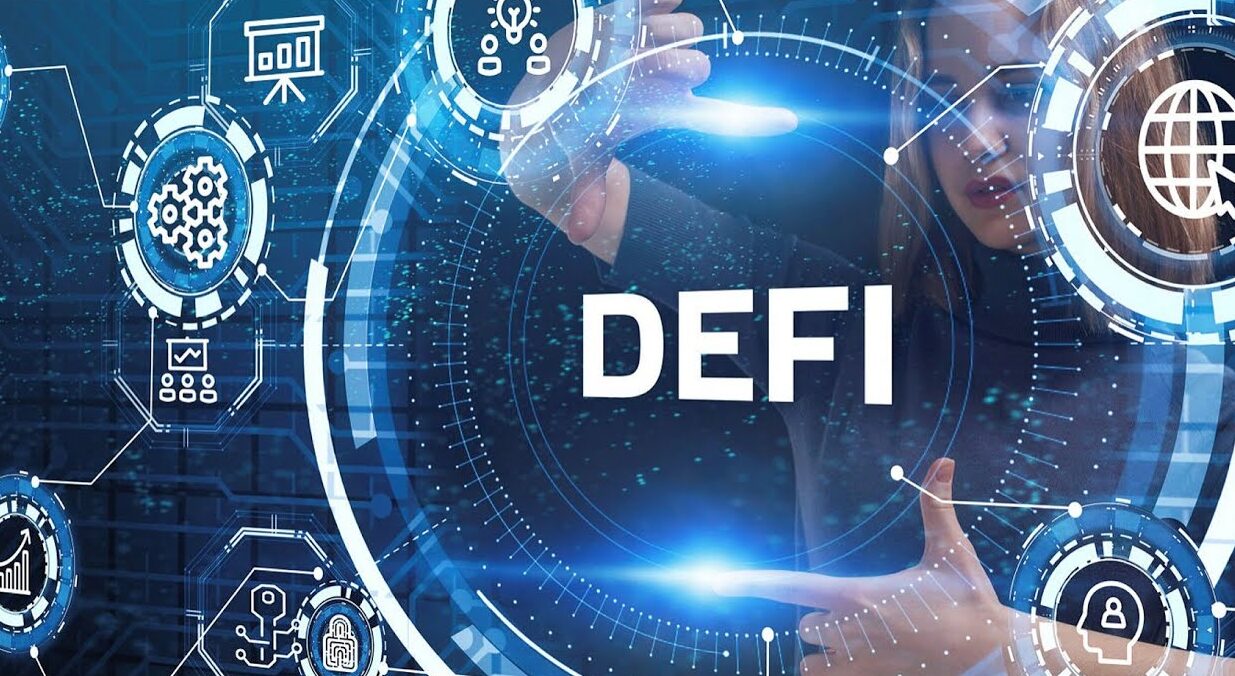Blockchain Impact on DeFi and Elections Transforming Democracy

Originally most known for supporting cryptocurrencies like Bitcoin Surges, blockchain technology is rapidly embraced in fields outside digital currencies. Two well-known sectors where blockchain is making significant advances are distributed finance (DeFi) and elections.
Blockchain’s transparency, security, and decentralization may solve long-standing issues in conventional systems, making it valuable in several industries. This study examines how blockchain is transforming elections and the rapid growth of DeFi, which is reinventing democracy and money.
Blockchain in Elections
One of the most exciting uses of blockchain is elections. Vote manipulation, fraud, and lack of transparency have questioned election integrity worldwide. Addressing these challenges is possible because blockchain’s distributed nature ensures votes are safely recorded in an irreversible ledger, making vote tampering practically impossible. Blockchain allows public and election authorities to verify vote counts independently.

Georgia’s election pilot project shows blockchain’s potential. In November 2024, Screven County entered the nation’s first blockchain election results. The county worked with Simple Proof to build an unchangeable and reliable data source for vote counting and summary on Bitcoin’s blockchain. This approach restored confidence in election results after fraud or miscounting allegations.
Blockchain could also help make elections more inclusive. By providing digital voting choices, blockchain can help eliminate obstacles that keep some people, such as those living in remote locations, from voting, especially those with disabilities. Blockchain voting could let people safely vote from the comfort of their homes, lessening the logistical difficulties caused by regular in-person voting.
The DeFi Revolution
DeFi offers lending, borrowing, trading, and investing on distributed blockchain networks instead of banks or stock exchanges. Decentralization allows DeFi systems to provide transparent, safe, and open financial services, allowing consumers to conduct direct financial transactions without a third party.
DeFi has exploded. As of 2024, DeFi’s TVL reached $82 billion, virtually matching its all-time high of $87 billion. This expansion has relied on platforms like Aave, Uniswap, and Curve Finance to attract millions of customers to their distributed financial services. DeFi has grown due to the growing acceptance of Layer 2 solutions, which increase Ethereum-based apps and cut Ethereum transaction costs and time.
Defi emerged because customers wanted more control over their financial assets, fewer barriers to entry, and better ROI. In contrast, DeFi allows anyone with an internet connection to stake tokens, lend assets, or produce derivative goods.
Blockchain DeFi Elections
Although blockchain applications in DeFi Whale and elections function in different spheres, both have common ideas that might support one another. Both sectors depend on the fundamental blockchain characteristics of openness, security, and decentralization. Blockchain makes the electoral process transparent and auditable, strengthening faith in it. Blockchain gives DeFi users a distributed and safe substitute for conventional financial systems, enabling them to take charge of their financial holdings.

The success of both sectors also helps one another. For example, blockchain’s usage in elections might help DeFi platforms, among other blockchain-based technologies, to be more accepted. Likewise, the expansion and prosperity of DeFi could encourage blockchain as a technology, fostering its increasing acceptance in voting systems and governance.
Furthermore, the possible combination of distributed autonomous organizations (DAOs) and DeFi could significantly affect voting systems. If blockchain-enabled elections succeed, DAOs—organizations run on smart contracts and blockchain systems—may set the stage for DAO establishment, allowing remote management of distributed governance, including fund allocation and decision-making via DeFi systems.
Final thoughts
Blockchain technology is transforming everything in the banking industry, including voting systems. Since it increases election openness, security, and access, it helps rebuild democratic trust. Blockchain democratizes finance and provides a more distributed alternative to traditional banks in DeFi.
Blockchain in elections combined with DeFi could lead to a more open, inclusive, and participatory society where people have more power over their civic and financial decisions. These technologies can change democracy and finance globally as they develop, offering more fair chances for everyone.




